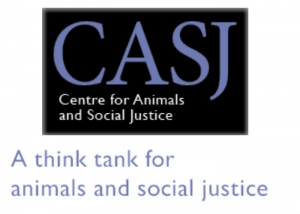- Home
- Directory
-
Our Programs
-
Strategic Advocacy Course
- Collaborations
- Humane Education
- International Policy
-
Model Animal Welfare Act
- Get the Book!
- Contents
- Part 1: Guiding Principles - A Broad Overview
- Part 2: Proposal for the Wording of a New Animal Welfare Act
-
Part 3: Explanatory Notes
- Notes to Chapter 1: Preliminary Provisions
- Notes to Chapter 2: General Provisions
- Notes to Chapter 3: Keeping of Animals/Care of Animals
- Notes to Chapter 4: Specific Categories of Animal Use
- Notes to Chapter 5: Implementation and Enforcement Provisions
- Notes to Chapter 6: Penal and Final/Concluding Provisions
- Constitution Project
-
Strategic Advocacy Course
-
Resources
- Events
- About Us
- Blog
Displaying items by tag: United Kingdom
New Report from the CASJ Explores How Promoting Democracy Can Help Animal Advocates Protect Animals
Anyone who has experience in the field of animal protection knows that for the majority of issues, from farmed animals, animal experimentation, pet overpopulation, hunting, animals in entertainment, to working animals, we battle vested interest groups which benefit economically from the use and abuse of animals. Unfortunately, many governments across the world operate under a paradigm that promotes human-centered economic growth. Because of the contribution of animal-use industries to economic growth, economic considerations of animal use are generally given primacy over animal welfare considerations. Thus, government structures, systems and processes are developed which support animal-use, despite the fact that these generally do not reflect public opinion on animal welfare. This paradigm prevents an overarching animal welfare ethic from being incorporated, the result being a marked lack of progress by animal advocates.
Animal Politics: The Rise of Animal Advocacy Parties
Think it’s impossible to stand up for animals at the voting booth? You may wish to reconsider. From politicians who vocally support strong animal protection legislation, to citizen-directed animal protection initiatives presented directly to the voting public, opportunities for putting the ballot to work to improve the lives of animals abound. Public discourse around animals and politics is also becoming more frequent, as illustrated by a recent conference in Bristol. There’s even a fully funded Ph.D. program that welcomes a concentration on the political representation of nonhuman interests.


